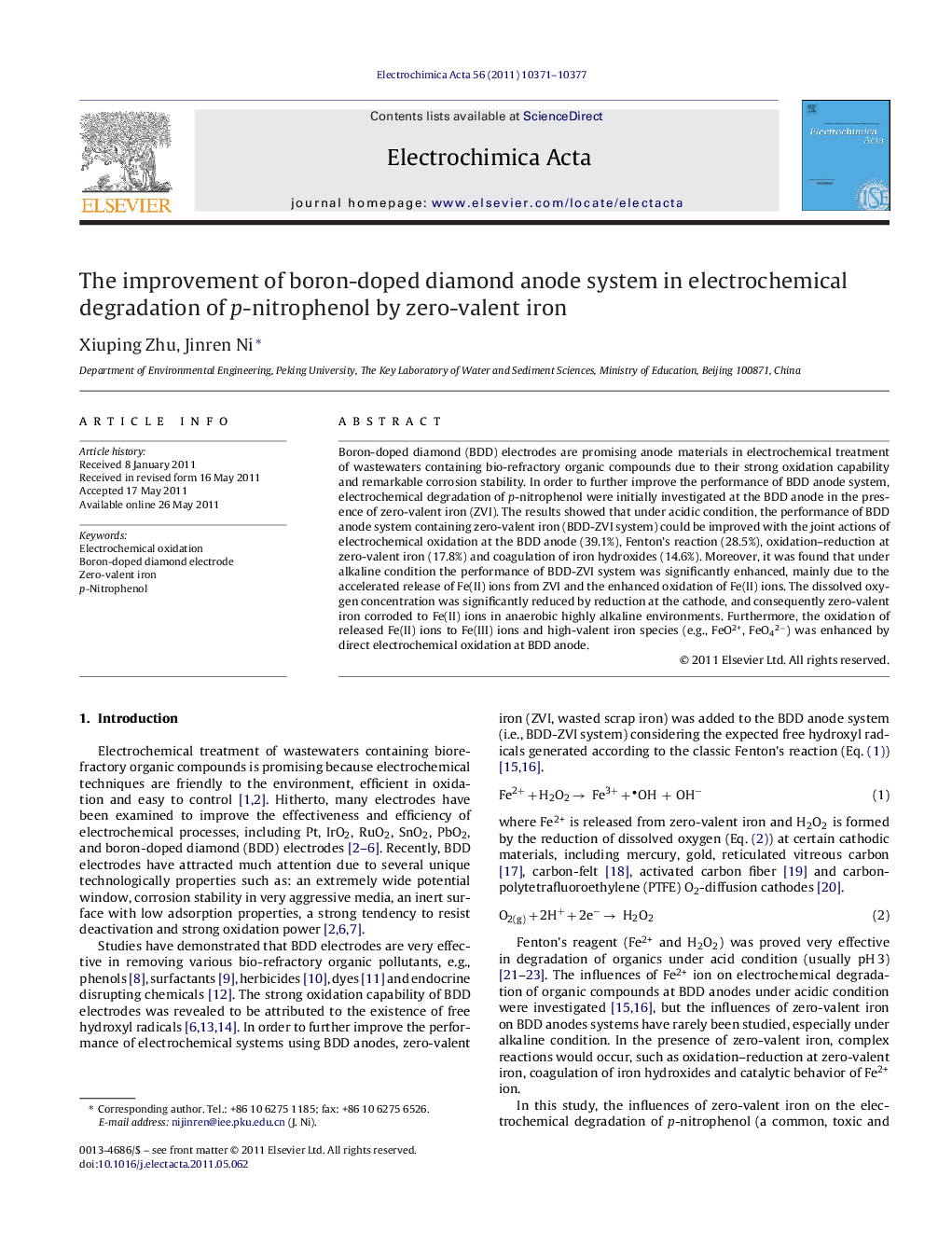| کد مقاله | کد نشریه | سال انتشار | مقاله انگلیسی | نسخه تمام متن |
|---|---|---|---|---|
| 190091 | 459692 | 2011 | 7 صفحه PDF | دانلود رایگان |

Boron-doped diamond (BDD) electrodes are promising anode materials in electrochemical treatment of wastewaters containing bio-refractory organic compounds due to their strong oxidation capability and remarkable corrosion stability. In order to further improve the performance of BDD anode system, electrochemical degradation of p-nitrophenol were initially investigated at the BDD anode in the presence of zero-valent iron (ZVI). The results showed that under acidic condition, the performance of BDD anode system containing zero-valent iron (BDD-ZVI system) could be improved with the joint actions of electrochemical oxidation at the BDD anode (39.1%), Fenton's reaction (28.5%), oxidation–reduction at zero-valent iron (17.8%) and coagulation of iron hydroxides (14.6%). Moreover, it was found that under alkaline condition the performance of BDD-ZVI system was significantly enhanced, mainly due to the accelerated release of Fe(II) ions from ZVI and the enhanced oxidation of Fe(II) ions. The dissolved oxygen concentration was significantly reduced by reduction at the cathode, and consequently zero-valent iron corroded to Fe(II) ions in anaerobic highly alkaline environments. Furthermore, the oxidation of released Fe(II) ions to Fe(III) ions and high-valent iron species (e.g., FeO2+, FeO42−) was enhanced by direct electrochemical oxidation at BDD anode.
Journal: Electrochimica Acta - Volume 56, Issue 28, 1 December 2011, Pages 10371–10377